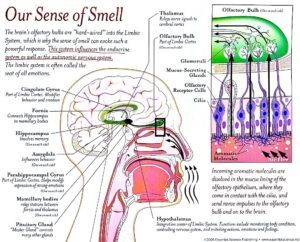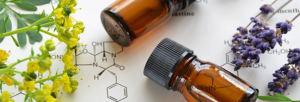“No matter what my depression tells me, I am worthy of love, I am worthy of acceptance, I am worthy of fulfillment. I Am More Than Enough.” –NAMI (National Alliance of Mental Illness)
As a practicing mental health counselor, I see the devastating effects of prolonged stress, anxiety, depression, and trauma my clients have experienced before they first start working with me.
 Shame, self-doubt, and feelings of unworthiness impact their lives and their relationships. It takes courage to reach out and ask for support to overcome these debilitating effects rooted in mind to recover and reclaim an empowered sense of self.
Shame, self-doubt, and feelings of unworthiness impact their lives and their relationships. It takes courage to reach out and ask for support to overcome these debilitating effects rooted in mind to recover and reclaim an empowered sense of self.
Although I don’t work with serious mental illness, within my therapeutic toolbox, I help my clients master their thoughts and emotions. I draw upon each client’s inner wisdom and natural resilience so they have the tools to make healthy choices, actualize their dreams and fulfill their purpose in life.
As a holistic practitioner and aromatherapist, I keep up to date with the latest science and treatment for calming the overactive nervous system and using the power of smell to comfort and soothe.
I am fascinated by the knowledge that plants and their essential oils contain natural compounds similar to atoms in our bodies. They help regulate neuroinflammation, influence neurotransmitters, restore emotions, and balance mood.
Incorporating lasting and impactful long-term emotional wellness solutions can be woven into a lifestyle that supports healthy mental wellness.
Mental Health Awareness
May is Mental Health Awareness Month.
Mental health includes our emotional, psychological, and social well-being. It affects how we think, feel, and act, and helps determine how we handle stress, relate to others, and make choices.
It’s no secret that the past few years have been mentally challenging. As there’s been an increase in people dealing with mental health issues, conversations around fears regarding racism, transphobia, rising gun violence, women’s reproductive freedoms, and coping strategies have become the norm.
 Our mental health includes and is influenced by where we live, learn, work, worship, and play. Adverse social and environmental conditions in neighborhoods contribute to social isolation and a lack of social support, exacerbating stress, overwhelm, anxiety, depression, and other behavioral health disorders.
Our mental health includes and is influenced by where we live, learn, work, worship, and play. Adverse social and environmental conditions in neighborhoods contribute to social isolation and a lack of social support, exacerbating stress, overwhelm, anxiety, depression, and other behavioral health disorders.
Other significant sources of stress for many of us include personal finances and current and political events.
Beyond the Individual
Beyond the individual, these challenges ripple through our families, workspaces, communities, and the world. People with mental illness often suffer in silence because of misconceptions about mental health and mental fitness. Their conditions go untreated, and many self-medicate with alcohol, drugs, sex, or social media.
So many of these people fall through the cracks and end up on the streets – or worse, they become victims of the system. Unfortunately, our society stigmatizes mental illness, and our justice system criminalizes people with serious mental illnesses.
Millions of people in the U.S. are affected by mental illness each year. It’s critical as a society to address how common mental illness is, so we can understand its physical, social, and financial impact and show that no one is alone.
Did you know that in the U.S., mental illness affects people of every age across every socio-economic class? The stats are alarming:
- 1 in 5 adults experiences mental illness each year.
- Depression is reported as the most significant health concern in the 21st century.
- About 350 million people are currently suffering from depression which is a leading cause of disability worldwide.
- 1 in 6 U.S. youth aged 6-17 experience a mental health disorder yearly.
- 50% of all lifetime mental illness begins by age 14, and 75% by age 24.
- Suicide is the 2nd leading cause of death among people aged 10-14.
- People with depression have a 40% higher risk of developing cardiovascular and metabolic diseases than the general population.
- High school students with significant symptoms of depression are more than twice as likely to drop out as their peers.
- Students aged 6-17 with mental, emotional, or behavioral concerns are 3x more likely to repeat a grade.
Families are impacted
- At least 8.4 million people in the U.S. care for an adult with a mental or emotional health issue.
- Caregivers of adults with mental or emotional health issues spend an average of 32 hours per week providing unpaid care.
These numbers are also powerful tools for raising public awareness, stigma-busting, and advocating for better mental health care.
The National Alliance on Mental Illness is the nation’s largest grassroots mental health organization dedicated to improving the lives of individuals and families affected by mental illness.
Social Media Impact on Mental Health
Social Media plays a big part in children’s and adolescents’ lives. Recent research shows that adolescents who spend more than three hours per day on social media face double the risk of experiencing poor mental health outcomes, such as symptoms of depression and anxiety.
Social media may also perpetuate body dissatisfaction, disordered eating behaviors, social comparison, and low self-esteem, especially among adolescent girls. One-third or more of girls aged 11-15 say they feel “addicted” to certain social media platforms, and over half of teenagers report that it would be hard to give up social media.
Sadly, for youth, we see increasing body dysphoria, and exposure to hate-based content, often contributing to poor sleep quality, reduced sleep duration, sleep difficulties, and depression.
Thus, adolescence and childhood represent a critical stage in brain development that can make young people more vulnerable to mental health issues.
Alchemical Wellness Care and Mental Health
Aromatherapy is a noninvasive, holistic approach to strengthening mental health. By improving mental health with natural botanical essential oils formulated to address states related to stress, depression, anxiety, trauma, or ADHD, we can stimulate positive mental and emotional responses.
Research addressing mental health concerns has established that positive moods and emotions elicited via scent inhalation can beneficially help.
The field of psycho neuroendoimmunology (PNEI) reinforces this mind-body connection. It explores the correlation between psychological processes and the body’s nervous, endocrine, and immune systems by examining how stress and emotional states affect our mental and emotional well-being.
Alchemical wellness care using natural organic botanical oils supports the health of the body, mind, and spirit. All Fleur Sprays and Oils are formulated with this intention.
The Power of Smell
“The perception of smell consists not only of the sensation of the odors themselves but of the experiences and emotions associated with these sensations.”
 Traditional mental health treatment ignores the power of nature, the role of the breath, gut health, nutrition, and the power of smell to activate one’s inner pharmacy.
Traditional mental health treatment ignores the power of nature, the role of the breath, gut health, nutrition, and the power of smell to activate one’s inner pharmacy.
Our sense of smell is more powerful than we think it to be. This sense significantly influences our thoughts, emotions, moods, behavior, and memories, usually outside awareness.
Interestingly, all creatures, from single-celled bacteria to bloodhounds, can identify various odors encountered. Humans would not have survived the evolutionary process without the sense of smell.
Smell was the very first sense to evolve and is located in the same part of the brain that processes emotion, memory, and motivation. To our ancestors, the purpose of smell wasn’t just essential; it was crucial for survival and remains so today.
It is fascinating to know the only fully developed sense a fetus has in the womb is smell. A fetus can smell anything the mother is exposed to or ingests through the amniotic fluid due to the link between smell and taste.
Additionally, it’s the one sense most developed in a child through age 10 when sight becomes more predominant.
The Nose Knows
I am someone who appreciates the complexities of the human body as much as the mind’s processes. The process of smelling is called olfaction and plays a significant role in our interaction with the environment and other people.
Like everything else in the world, scents are composed of molecules. The olfactory system not only acts to detect potential dangers in the environment, such as smoke, gas, or dust, but also powerfully influences our nutritional choices, social behavior, and well-being.
 The olfactory system structure comprises two bulbs in the front and bottom of the brain, one above each nasal cavity. The olfactory bulbs (OB) play a central role in processing smells. They detect odors and send the information from the nose to the brain through the olfactory tracts for further processing in the brain.
The olfactory system structure comprises two bulbs in the front and bottom of the brain, one above each nasal cavity. The olfactory bulbs (OB) play a central role in processing smells. They detect odors and send the information from the nose to the brain through the olfactory tracts for further processing in the brain.
Odor molecules travel up in your nose and vibrate the olfactory membrane, which contains highly specialized nerve endings called olfactory receptors. There are millions of olfactory receptors, and they can recognize millions of different scent molecules.
Once olfactory receptors recognize a particular scent molecule, they stimulate the olfactory pathways that lead to the limbic portion of the brain. This process triggers potent chemical messengers to release neurotransmitters (adrenaline, dopamine, or serotonin), affecting our feelings and thoughts.
An Unconscious Process
Since olfactory stimuli cannot be consciously blocked, they influence our emotions and trigger memories. It is because odors travel directly to the limbic system, including the amygdala and the hippocampus, which are involved in emotions and memory. The limbic system is linked to the perception of odor, sensations of pleasure and pain, and emotions like rage, fear, sadness, and sexual feelings.
Furthermore, olfaction is the only sense directly affecting how we process information in the cerebral cortex — the center of our thoughts, perception, creativity, and language.
Scents and Psychology
We are undoubtedly profoundly shaped by our reactions to and interpretations of different smells in our emotional, physical, and even sexual lives.
From a psychological point of view, the sense of smell is directly connected to our brain’s reward system. We can stimulate the brain for its therapeutic potential.
Smell plays an integral part in our psychological makeup and is one of the five ways we connect with the world around us. It helps regulate our moods, thoughts, behavior, and interactions.
Deeply rooted emotional responses are triggered instantaneously when a scent stimulates our brain and activates our limbic system.
That’s why scents can evoke immediate reactions sparking strong emotions, triggering memories] and often influence behavior and our interactions with others. Furthermore, scents affect our cognitive abilities and motivation.
Conversely, without smell, mood and emotions are difficult to balance, behaviors become impossible to manage, stress maladaptively cycles, and brain health begins deteriorating.
Aromachology or Aromatherapy
When I began my aromatherapy studies more than 20 years ago, I was most interested in how scent may modulate mental health outcomes. In particular, I wanted to know how to evoke positive, feel-good responses to stress, depression, and anxiety using scent.
As an aromatherapist, I’m fascinated by the psychological effects transmitted from scent to the brain and how aromas can induce positive results with clients. By blending specific essential oils to create a particular nuance of smell, I discovered I could invoke a relaxation response, develop neuroassociative conditioning, and improve health conditions leading to well-being.
Scents as a way to influence moods are not a new concept. Ancient people knew the effect that aromas could have on us without understanding the complex mechanisms in the body due to exposure to individual smells.
Aromatherapy and the influence smell and scents have on our mental and physical well-being is a discipline that uses essential oils derived from natural botanical plant essences to improve a person’s health. As allies, essential oils support the body in healing itself. I believe that the volatile compounds of scents from botanical sources help in the healing process.
 What is Aromachology?
What is Aromachology?
Aromachology is a relatively new science that explores positive feelings induced by fragrance. It is a fascinating science that studies how scents and behaviors are interconnected. Aromachology and aromatherapy certainly overlap in scope and practice.
But it is only in recent years, through modern scientific study, that researchers in the science of scent have deduced precisely how our brain interprets scents and how they affect our emotions.
The science behind aromachology has validated many historic aromatherapy claims. For example, aromachology’s scientific research has substantiated what herbalists and folk medicine demonstrated: Rosemary enhances cognitive performance, Peppermint is invigorating, and Lavender is relaxing.
Since our brain reacts to odors, we smell by emitting certain brain waves, enabling scientists to measure. An example would be the effects of the scent of Rose on heart rate and Lavender on cortisol levels, lowering physiological and mental stress.
Based on evidence-based science, research, and data, changes in the human psyche and behavior can be modulated by stimulating the olfactory pathways in the brain and, in particular, the limbic system with smell.
Aromachologists examine the relationship between feelings and emotions and analyze their effects on relaxation, exhilaration, sensuality, happiness, and well-being. Precisely which emotion is evoked when experiencing aroma will depend on the natural chemistry of a particular essential oil.
Using this knowledge, aromachology and aromatherapy can be complementary tools in treating psychological disorders in the same way as talk therapy and shamanic approaches.
Aromachology Applications
While aromachology looks at why and how scents trigger a psychological response in humans, aromatherapy looks at what scents cause both physiological and psychological responses. Aromatherapy is also about healing, while aromachology is often applied for commercial purposes,
The science of aromachology is used by perfumers and scent branding marketers for commercial purposes. Aromachologists create “functional scents,” often using synthetic scent molecules labeled as fragrances manufactured in the lab.
This industry encourages the use of subtly scented air spaces in retail environments and food establishments to impact customer experience and influence buying behavior.
Through the science of aromachology, home and body products are chemically designed with specific psychological objectives in mind to capitalize on the memories people might have associated with these types of smells.
Fragrance Danger
The science of aromachology has created the most commercially scented products.
As a holistic aromatherapist, I have issues with manufactured fragrances. For example, if you are sensitive to fragrance like me and have walked through a department store’s perfume section, you may have been assaulted by chemical fragrances that overwhelmingly choke and cloy. They hit hard in the front of my head, causing me to sneeze and cough, my eyes to tear, and in some instances, trigger nausea and headache,
That’s the acute reaction from these chemicals — and it’s stressful!
“Fragrance” is a term for any chemicals used to create an aroma. Dozens, sometimes even hundreds, of chemicals can hide under one little word. Thus fragrance is not just one thing. These could be naturally adulterated essential oils or lab-created synthetics.
You’ll find this nomer on the product labels of the home and personal care products you may use every day. If you read the ingredient list, fragrance on any consumer product (from perfume to air fresheners, candles to scratch-and-sniff stickers) means a combination of natural and chemical ingredients that create a scent.
 Fragrance usually consists of around 50-200 different chemicals from a possible list of over 3000 ingredients. These are almost always 100% synthetic and frequently manufactured from petrochemicals (unless expressly stated on the label as 100% natural fragrance).
Fragrance usually consists of around 50-200 different chemicals from a possible list of over 3000 ingredients. These are almost always 100% synthetic and frequently manufactured from petrochemicals (unless expressly stated on the label as 100% natural fragrance).
Fragrance Toxicity
Fragranced products contain chemicals linked to cancer, birth defects, hormone disruption, and other adverse health effects.
Your brain is vulnerable to volatile toxicity. The result? Neurological illness, brain fog, anxiety and depression, and more.
Exposure to the chemicals used in synthetic scents and fragrances are neurotoxic, carcinogenic, and endocrine disrupters that may increase physical illness: sensitivities (dermatitis), and allergies (sinusitis), cause or exacerbate respiratory irritation such as asthma, postnasal drip, and acid reflux.
An intolerance to manufactured scents can lead to migraines and long-term sick leave. They also exacerbate mental health challenges affecting psychological states such as
- anxiety
- depression
- fatigue
- confusion
- anger
- ADHD
- cognitive impairment related to the execution of complex tasks and productivity
- social
- behavior
- interpersonal interactions.
Unless a product contains botanical essential oils, it’s aromachology, not aromatherapy. It’s wise to avoid commercially scented products for your mental health.
Aromatherapy Mental Health Benefits
“Scents can alter our emotions and moods more than any other sensory experience.” –Rachel Herz
While chemically synthesized scents can worsen mental and emotional states, botanical aromatherapy can help us relax, give us energy, or stimulate our creativitý, and thus contribute to our physical and psychological well-being.
I talk about the benefits of creating aromatherapeutic rituals that help us destress, focus, and restore energy as part of a healthy lifestyle.
There is ample research on the application of aromatherapy to reduce anxiety, promote relaxation and increase the well-being of people of all ages and in many medical settings.
Aromatherapy is currently used worldwide to manage chronic pain, depression, anxiety, some cognitive disorders, insomnia, and stress-related disorders. Research has concluded that aromatherapy provides a potentially effective treatment for various psychiatric disorders.
Aromatherapy has many mental health benefits for patients undergoing oncology treatment, hemodialysis, memory, palliative or intensive care, gynecological stages of life, and birthing rooms. They can help harness feelings of hope and resilience.
Bear in mind, however, that success rates will vary from one person to another when essential oils are used in conjunction with medical treatment.
Properly formulated, pure botanical aromatherapy can invigorate and stimulate you. Its mental health benefits can calm and soothe you, help you sleep, promote endurance, relax, inspire and arouse, and refresh, revive, and rejuvenate you. In addition, pleasant ambient scents can help to improve productivity and prosocial behavior.
Fleur flower essence pure botanical aromatherapy Sprays and Oils are made in small batches to ensure quality therapeutic outcomes. Alchemically formulated to affect a person’s overall well-being and relieve acute mental-emotional states, they are non-toxic because they are made with pure botanical essential oils.
I’ve listed some of the most effective essential oils in a few of our Sprays and Oils in honor of Mental Health Awareness Month.
Boosting Mood
We all experience occasional slumps in mood from time to time. During a slump, you might feel unmotivated, lost, unproductive, angry, annoyed, or stuck, engendering many negative emotions.
Hope Spray was formulated to address feelings of grief. Organic essential oils of Frankincense, Laurel, and Neroli stimulate the production of neurotransmitters such as dopamine and serotonin, easing sadness and loss.
Inspiration Spray, organic essential oils of Sandalwood, Sweet Orange, Grapefruit, and Jasmine, stimulate the mind to reach for creative solutions.
Easing Depression
Depression can be a life-threatening mood disorder manifested as a combination of cognitive and physical symptoms that leads to decreased interest in daily life activities. If untreated, depression significantly impacts a person’s quality of life and work performance. Untreated depression may lead to disability, suffering, and a high risk of perpetrating self-harm and suicide.
Non-pharmacological interventions by smelling certain aromas can reduce the symptoms of depression. A recent study has shown that aromatherapy massage was more productive than inhalation in alleviating depressive symptoms.
Many studies show that citrus aroma from essential oils: Bergamot, Lemon, and Sweet Orange has antidepressant properties that can help alleviate symptoms of depression.
Rajeunir Energy Oil helps to dispel a depressed mood with a blend of uplifting organic essential oils of Lemon, Juniper, Peppermint, and Rosemary.
Reducing Stress and Anxiety
One of the most significant benefits of aromatherapy is reducing stress and anxiety.
Essential oils of Bergamot, Clary Sage, Cedarwood, Frankincense, Geranium, Lavender, Melissa, Palo Santo, Patchouli, Roman Chamomile, Rose, Sandalwood, Vetiver, and Ylang Ylang have been shown to have a calming effect on the mind-body, reducing symptoms of anxiety and stress.
Our Anxiety Relief Spray can reduce cortisol levels quickly, relieving a racing, overactive mind and emotional flooding. Formulated with organic essential oils of Sweet Orange, Rose Geranium, and Ylang Ylang, its calming, clinically proven formula was used in an Australian study of adults suffering from anxiety symptoms of panic that overwhelmingly improved their ability to function.
Shanti Serenity Oil is formulated with an alchemical synergy blend of organic essential oils of Lavender, Neroli, Myrrh, Clary Sage, Melissa, and Bourbon Vanilla in a Jojoba oil base. Emotionally and energetically, the rich, warm, slightly intoxicating aroma of vanilla softens extreme emotions, encouraging patience, awareness, and peace of mind, body, and spirit.
Prasanta Calming Oil harnesses the power of Lavender and Sweet Orange organic essential oils to soothe an overactive nervous system.
Improving Sleep
Certain aromas may contribute to better sleep because of the power of the sense of smell. Some scents promote relaxation, making falling asleep easier and having a well-rested feeling upon awakening the next day.
The blissful fusion of Bergamot and Ylang Ylang essential oils in our Sweet Dreams Spray helps to release tension. The aromas support a calm state, inviting the body to gently unwind, relax, and slip into a restful slumber.
Oil’s Rest & Restore Oil’s synergy blend of soporific essential oils promotes better sleep by encouraging the parasympathetic relaxation response. Clary Sage, Neroli, Spikenard, Valerian, Vetiver, and Ylang Ylang organic essential oils, can help regulate the body’s sleep-wake cycle by releasing melatonin, a hormone that regulates sleep, balancing the brain and the limbic system.
Supporting Mental Clarity
Essential oils such as Rosemary, Peppermint, and Lemon improve focus, concentration, and mental clarity. These aromas stimulate the mind, promoting better cognitive performance and memory retention.
Peppermint oil enhances energy. The aroma stimulates the areas of the brain responsible for alertness, leading to quicker audio and visual reaction times. It also has fatigue-fighting benefits.
The aroma of Rosemary stimulates memory recall. One study found that students remembered images and numbers better than the control group when rosemary essential oil was spritzed into the air in the testing room.
Inhaling Clarity & Focus Spray formulated with organic essential oils of Lemon, Basil, Coriander, Rosemary, Cypress, Fir, Peppermint, Melissa, and Vetiver can help reduce mental fatigue and brain fog, encouraging greater alertness and mental sharpness.
An Integrated Holistic CAM Approach to Mental Health
 From a holistic point of view, many aromatherapeutic remedies and protocols addressing mental health connect to the physical body, psychological state, and spirit.
From a holistic point of view, many aromatherapeutic remedies and protocols addressing mental health connect to the physical body, psychological state, and spirit.
The use of aromatherapy for managing mental health symptoms is a helpful treatment option.
Although aromatherapy should not be considered a miracle cure for serious emotional issues, in the short term, essential oils may assist with particular mental-emotional states, sometimes with significant results.
The effectiveness of using aromatherapy with mild to moderate mental health symptoms is helpful for short-term intervention. Using pure botanical aromatherapy may enhance your emotional outlook, provide support, and help balance your emotions during the day.
In my experience, however, aromatherapy is best paired with other psychological interventions to get to the root of a person’s mental health issues. Addressing long-standing symptoms requires diving deeper to help unravel the thinking, emotional, and behavior patterns.
Integrative mental health treatment emphasizes multimodal interventions, which are two or more interventions such as conventional health care approaches using lifestyle, diet, movement, and active rest.
I have used aromatherapeutic interventions to spray my environment before meeting with anxious, depressed, or clients in the grip of past traumas. This benefits a calming environment and a welcoming atmosphere.
Many of my clients successfully use Fleur Sprays and Oils to calm their nervous systems, uplift their mood, and when emotionally triggered at home or work. In addition, I make customized sprays and oils for some clients to target their unique constitutional symptoms. (contact me for an individualized consultation)
Conclusion
In this blog, I have shared how scent pervades the deepest levels of our psyche, which is why aromatherapy profoundly benefits individuals facing mental health challenges.
Additionally, we can do something about our and our children’s mental health by applying the science of aromachology and botanical aromatherapy to uplift the mood.
Good mental health is vital for our well-being because it directly affects the quality of our life. Mentally strong individuals cope better with stress, physical hardship, or illness and are generally more optimistic about life and resilient to everyday stressors. Moreover, mentally healthy individuals are creatively inspired!
Embracing aromatherapeutic self-care practices for your mental health will benefit your family and community, giving you more energy to do what makes you happy!
Moreover, if you are positive about yourself, you will likely feel worthy of love, acceptance, and fulfillment.
In my next blog, I’ll share how we can recover from PTSD, a complex mental health disorder.
All my aromatic love,
Vidya

